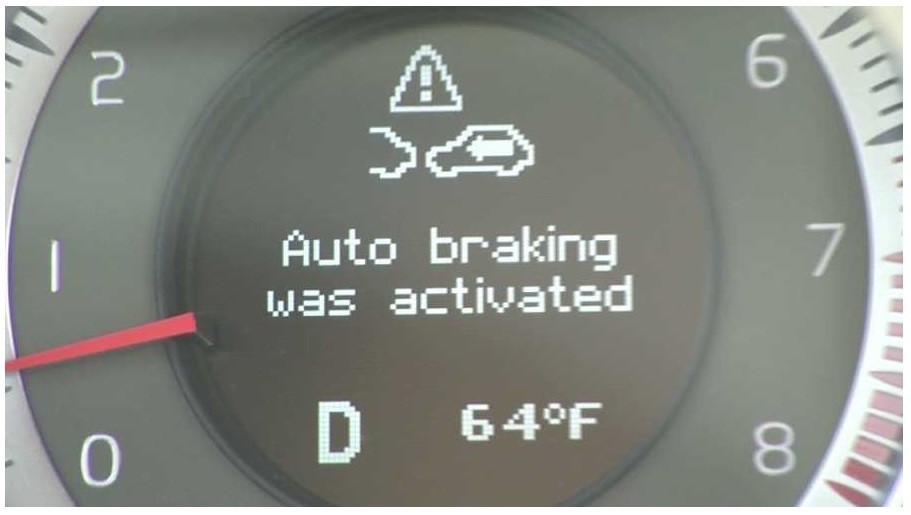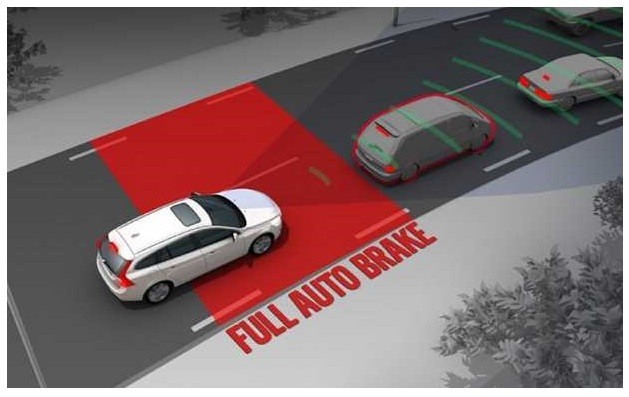Automated Braking Systems Prevent Crashes
 You're traveling too fast around Waco and suddenly you realize—“Oh no! I don't have enough time to stop.”
You're traveling too fast around Waco and suddenly you realize—“Oh no! I don't have enough time to stop.”
You brace yourself for the collision and then all of a sudden, your car stops in time. That’s when you remember that you have an automated braking system! And guess what? You just saved your car and maybe your life, thanks to the latest crash avoidance technology available.
At Service King South Waco, we always love to get news about innovative new safety features on today's cars, so here is some information about automated braking systems and how they can prevent accidents.
Researchers at the Insurance Institute for Highway Safety (IIHS) have found that automated emergency braking systems lessen rear-end crashes by 40%, saving innumerable lives and millions in property damage. Many of the crash avoidance systems on the market today don't actually do anything more than warning or alerting drivers.
Unless you own a car that was made after 2012, sophisticated driver-assistance features are not available to you. And if you're purchasing a 2016/17 year vehicle, many of these features will cost you more than just the listed price.
But fortunately, this cutting-edge technology could soon be accessible to all drivers of new cars, including here in Waco and throughout TX. In September of last year, 10 car manufacturers signed on the dotted line after reaching an agreement with federal regulators to put automated braking on all new cars. It was a big deal and a huge victory for automotive safety regulators who have been fighting for these braking systems since 2009.
There's no deadline or even a target date for when this agreement will go into effect, but hopefully this new alliance between many of the world's leading carmakers will create a sense of urgency to the process. IIHS claims that if all cars contained automated braking, 700,000 collisions would have been prevented last year alone.
Even when car accidents can't be avoided, automated braking systems are proven to substantially minimize the seriousness of crashes. The best part of these systems is that they reduce injuries by actually taking action, as opposed to most of the current crash avoidance systems th at simply warn drivers. The rate of rear-end crashes with injuries decreases 42% with auto brake systems, but only 6% with collision-warning systems.
at simply warn drivers. The rate of rear-end crashes with injuries decreases 42% with auto brake systems, but only 6% with collision-warning systems.
Why is this so important? Because we can replace vehicles, but we obviously can't replace people. By cutting down on driver and passenger injuries and consequently saving lives, automated braking systems make sense in more ways than one. A few years ago, these warning-only avoidance systems were all the rage and considered cutting-edge, but now they're already considered archaic by many automotive experts.
Where did the researchers get the data for this national study? The IIHS carefully studied a wide range of safety systems, notably from Acura, Honda, Mercedes-Benz, Volvo and Subaru models. They examined all police-reported rear-end crashes in 22 states and evaluated the crash rates of vehicles equipped with the technology to those without crash prevention systems. The results were surprising, because these vehicle models are considered some of the safest in the world.
So, when the time comes for you to go shopping for a new vehicle, ask the salesman if their vehicles contain the newest automated braking systems onboard. If the answer is yes, maybe you might want to consider buying one of these brands, for safety reasons if nothing else?
Sources: IIHS, Subaru PR and Westwood One









 You're traveling too fast around Waco and suddenly you realize—“Oh no! I don't have enough time to stop.”
You're traveling too fast around Waco and suddenly you realize—“Oh no! I don't have enough time to stop.” at simply warn drivers. The rate of rear-end crashes with injuries decreases 42% with auto brake systems, but only 6% with collision-warning systems.
at simply warn drivers. The rate of rear-end crashes with injuries decreases 42% with auto brake systems, but only 6% with collision-warning systems.
Social